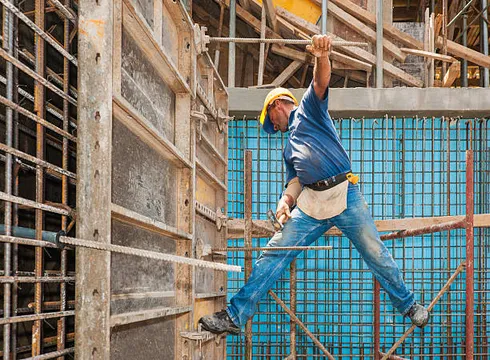The good news is that you do not live in an era where there continue to be approximately 14,000 workplace fatalities in a single year. Your safety at work improved and increased greatly through the Occupational Safety and Health Act of 1970, which Congress voted into law under the Richard Nixon administration.
That doesn’t necessarily mean you are never at risk for injury in your workplace, however. Every job has some level of danger, and knowing your rights and protections is essential.
The Legacy of OSHA: Why It Matters
The Occupational Safety and Health Administration (OSHA) was born out of the Act to serve a singular mission: to protect American workers. Its enforcement of industry-specific standards, employer inspections, and mandatory reporting of injuries has helped reduce fatal workplace incidents by more than 60% since the 1970s.
Yet, OSHA isn’t a bulletproof shield. Many employers still fall short, failing to provide appropriate equipment, sufficient training, or a safe work environment. When this happens, the law is on your side.
How Great is Your Risk?
If you’re a schoolteacher, a writer, or an office administrator, your risk for injury in the workplace is likely quite low. The following list shows some of the most dangerous jobs in the nation where workers are at greater risk for severe and even fatal injuries:
Job safety analysts typically list logging as the single most dangerous job in the nation. The most common injury-causing accident in this line of work is objects striking workers.
Commercial fishing is also a highly dangerous job to have in the United States. In 2016, there were approximately 86 deaths per 100,000 workers in the commercial fishing industry.
You may be among those who earn a living driving a delivery truck or other commercial vehicle. At least 80 percent of fatal injuries suffered in this type of work result from motor vehicle collisions.
Agricultural work ranks high on most lists of dangerous jobs as well. Heavy farm equipment, power tools, vehicles, and other issues place ranchers and farmers in harm’s way in the workplace.
However, not all injuries happen in high-risk environments. Even in an office setting, seemingly minor incidents, such as carpal tunnel syndrome, repetitive strain injury (RSI), or slipping on a wet floor, can result in significant time off work and legal claims.
From Risk to Rights: What Happens After a Workplace Injury
Chances are, if you have to take time off work because a paperweight or other heavy object falls off a desk and hits your toe, you will likely be able to return to work after achieving a full recovery in just a few days or maybe a week, if you broke a toe. If, however, you fall off a high ladder, get caught in a mechanized piece of equipment, or are involved in a motor vehicle collision, your recovery time may be quite lengthy.
Injury severity determines not only your medical path but also your legal options and compensation eligibility.
Types of Workplace Injuries: A Closer Look
Minor Injuries
These include:
- Soft tissue damage
- Minor cuts and bruises
- Short-term sprains or strains
Typically, these injuries result in a brief time away from work. However, multiple minor injuries over time, especially in jobs requiring repetitive movements, can result in long-term disorders.
Moderate to Severe Injuries
- Fractures and broken bones
- Burns (chemical or fire-related)
- Head injuries and concussions
- Torn ligaments
Recovery may take weeks to months. These types of injuries often lead to temporary total disability (TTD) or partial disability (TPD) designations in workers’ compensation claims.
Long-Term and Permanent Injuries
- Spinal cord injuries
- Traumatic brain injuries (TBIs)
- Psychological trauma (PTSD from workplace violence or catastrophic incidents)
- Amputation or disfigurement
In these cases, you may be entitled to permanent disability benefits, lifetime medical coverage, and vocational retraining.
What California Law Says About Workers’ Compensation
Under California Labor Code Section 3700, all employers must carry workers’ compensation insurance, even if they have only one employee. It covers:
- Medical care
- Temporary or permanent disability payments
- Supplemental job displacement benefits
- Death benefits for surviving dependents
Unlike personal injury claims, workers’ compensation is a no-fault system. This means you can file a claim even if your actions partly contributed to the injury, unless your injury resulted from intoxication or willful misconduct.
Can’t Return to Work? Know Your Legal Rights
Surviving a workplace accident is one thing. Not being able to return to your duties because of the injuries you suffered in an on-the-job accident is quite another. Moderate to severe workplace injuries often spark financial crises for workers as well. It’s no secret that medical treatment is expensive. In addition, if you can’t work, you might not have any other source of income to help make ends meet.
That’s where permanent partial disability (PPD) and permanent total disability (PTD) classifications come into play. Depending on your doctor’s evaluation and the percentage of impairment, you could receive:
- Lifetime disability payments
- Structured settlements
- Access to job retraining or rehabilitation services
In California, injured undocumented workers also have the right to claim benefits. Your immigration status does not bar you from accessing workers’ comp.
Seeking Support: Get Legal Help That Works for You
In such circumstances, it helps to speak with someone well-versed in workers’ compensation laws to gain knowledge and needed support to seek the maximum benefits to which you may be entitled.
At Hussain Gutierrez Law, our experienced legal team helps you:
- Navigate claim denials or delays
- Challenge unfair medical assessments
- Maximize your settlement amount
- Protect against employer retaliation
Whether your injury is physical or psychological, short-term or life-altering, we’re here to help you fight for what you’re owed.
Your Workers’ Compensation Rights at a Glance
Covered Benefits Include:
- Emergency and ongoing medical treatment
- Mileage reimbursement for travel to medical appointments
- Wage replacement (typically two-thirds of your average weekly wages)
- Return-to-work supplements if your employer can’t rehire you
- Death benefits are paid to dependents of workers who die from work-related injuries
If your claim is denied, you have the right to file an appeal with the California Workers’ Compensation Appeals Board (WCAB).
Frequently Asked Questions (FAQs)
What is the timeline for reporting a workplace injury?
You should report your injury within 30 days of the incident. Failing to do so may jeopardize your claim. After reporting, your employer must give you a claim form (DWC-1) within one working day.
Can I sue my employer for a workplace injury?
Generally, no. Workers’ compensation is the exclusive remedy. However, if your injury was caused by a third party (e.g., equipment manufacturer), a separate personal injury lawsuit may be possible.
How long does a workers’ comp claim take to settle?
Depending on complexity, a case may resolve in a few months or take up to two years. Complex injuries or disputes over treatment often extend timelines.
Do I need a lawyer to file a claim?
Not legally required, but strongly recommended. Insurers often attempt to limit payouts. A lawyer protects your rights, especially for serious or permanent injuries.
How is workers’ comp calculated?
It’s based on: Your average weekly earnings, Disability rating, Type of injury, and Expected recovery time.
Final Thoughts: Stay Safe, Stay Informed
Workplace injuries can change your life, but you don’t have to face the aftermath alone. Whether you slipped in a break room or suffered a catastrophic injury on-site, you have rights, and we’re here to uphold them.
Get the Help You Deserve
At Hussain Gutierrez Law, we combine years of experience with personal dedication to every case.
- Free Case Evaluation
- Bilingual Services Available
We serve workers across California because everyone deserves justice.
Call now or contact us through our website to schedule a free consultation.



